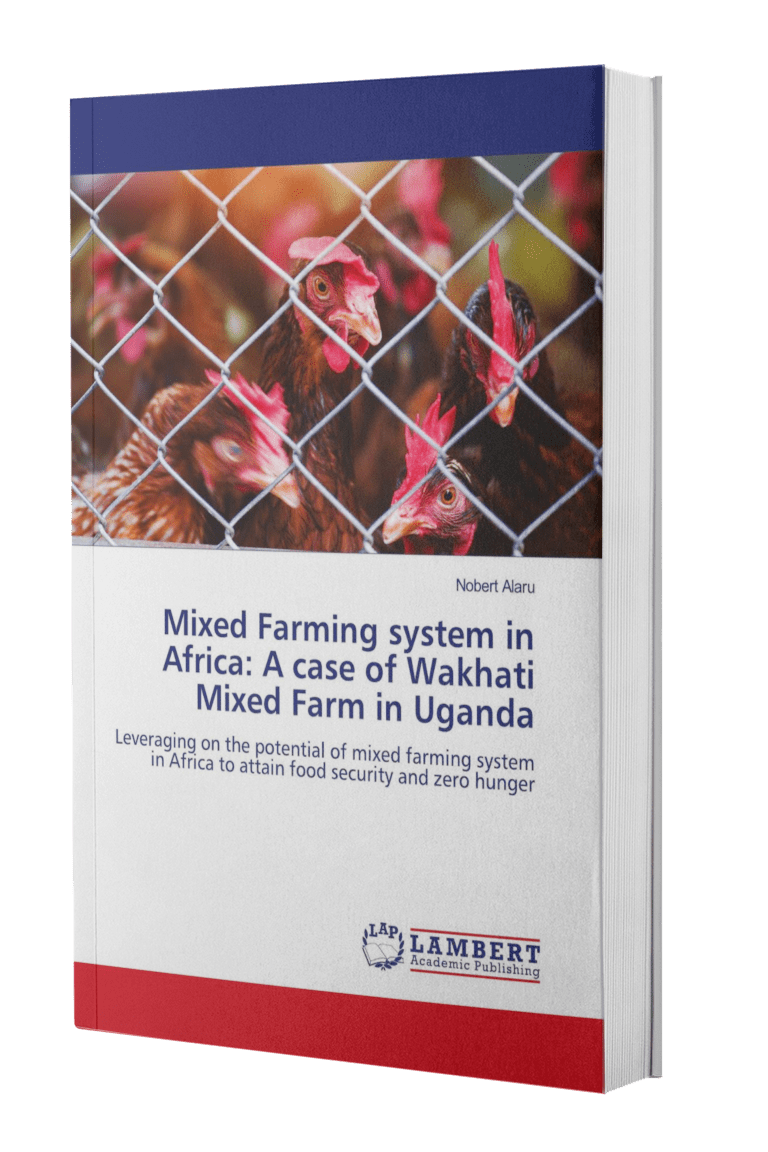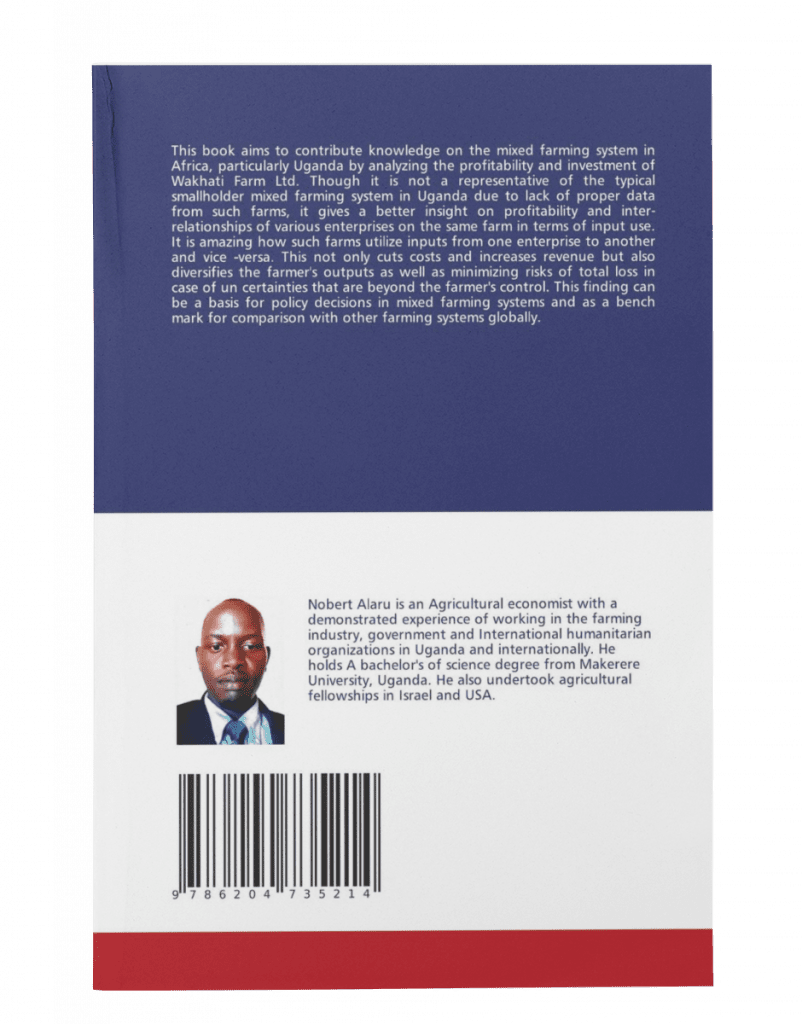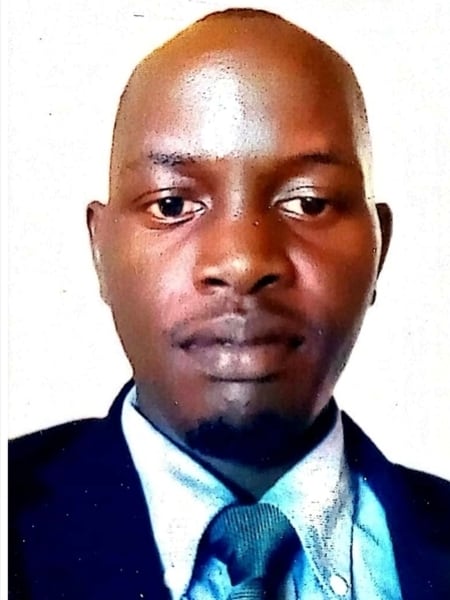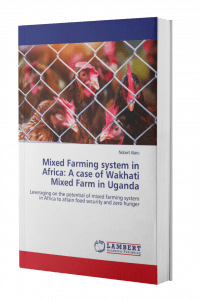Mixed Farming system in Africa: A case of Wakhati Mixed Farm in Uganda
Leveraging on the potential of mixed farming system in Africa to attain food security and zero hunger
About the book:
This book aims to contribute knowledge on the mixed farming system in Africa, particularly Uganda by analyzing the profitability and investment of Wakhati Farm Ltd. Though it is not a representative of the typical smallholder mixed farming system in Uganda due to lack of proper data from such farms, it gives a better insight on profitability and inter-relationships of various enterprises on the same farm in terms of input use. It is amazing how such farms utilize inputs from one enterprise to another and vice -versa. This not only cuts costs and increases revenue but also diversifies the farmer’s outputs as well as minimizing risks of total loss in case of un certainties that are beyond the farmer’s control. This finding can be a basis for policy decisions in mixed farming systems and as a bench mark for comparison with other farming systems globally.
About the Author:
Nobert Alaru
My name is Nobert Alaru. I am 32 years old, a Ugandan agricultural economist currently pursuing an International Master in Rural Development at Ghent University, Belgium, with a bachelor’s degree in Makerere University, Uganda. As a senior project officer-Livelihoods, I then worked with World Vision Uganda in Arua, and recently with the Ministry of Agriculture, Animal Industry, and Fisheries (MAAIF) in Uganda. I undertook fellowships in the field of Agriculture in the United States of America in 2018 and in Israel in 2014. I was born in a small village of Eremi, Metu sub-county, Moyo district of northern Uganda bordering South Sudan. Coming from a polygamous family and predominantly dependent on agriculture for livelihood, I got challenged and inspired to understand agriculture and rural development. This is explained by my insatiable hunger to seek knowledge and skills in this sector both nationally and Internationally so that I become part of the team that can change the status quo, especially where I come from in regards to commercializing agriculture and industrialization thus alleviating poverty in the rural areas. In the Countries, I have traveled to, such as Israel, the USA, and Belgium (developed countries as you can see), Agricultural employs just barely 1-5 percent of the population and contributes less than 10 percent to the GDP but this is contrary to the least developed countries especially my country. I work day and night to ensure am part of the team to reverse this paradigm in the least developed countries including my Country. Therefore, understanding the underlying farming system and how it can be leveraged step by step would have a far-reaching impact on shifting the paradigm. I hope the reader will enjoy the farming system in question and how fascinating the synergy can have a positive impact on the livelihoods of communities. I look forward to your comments to









